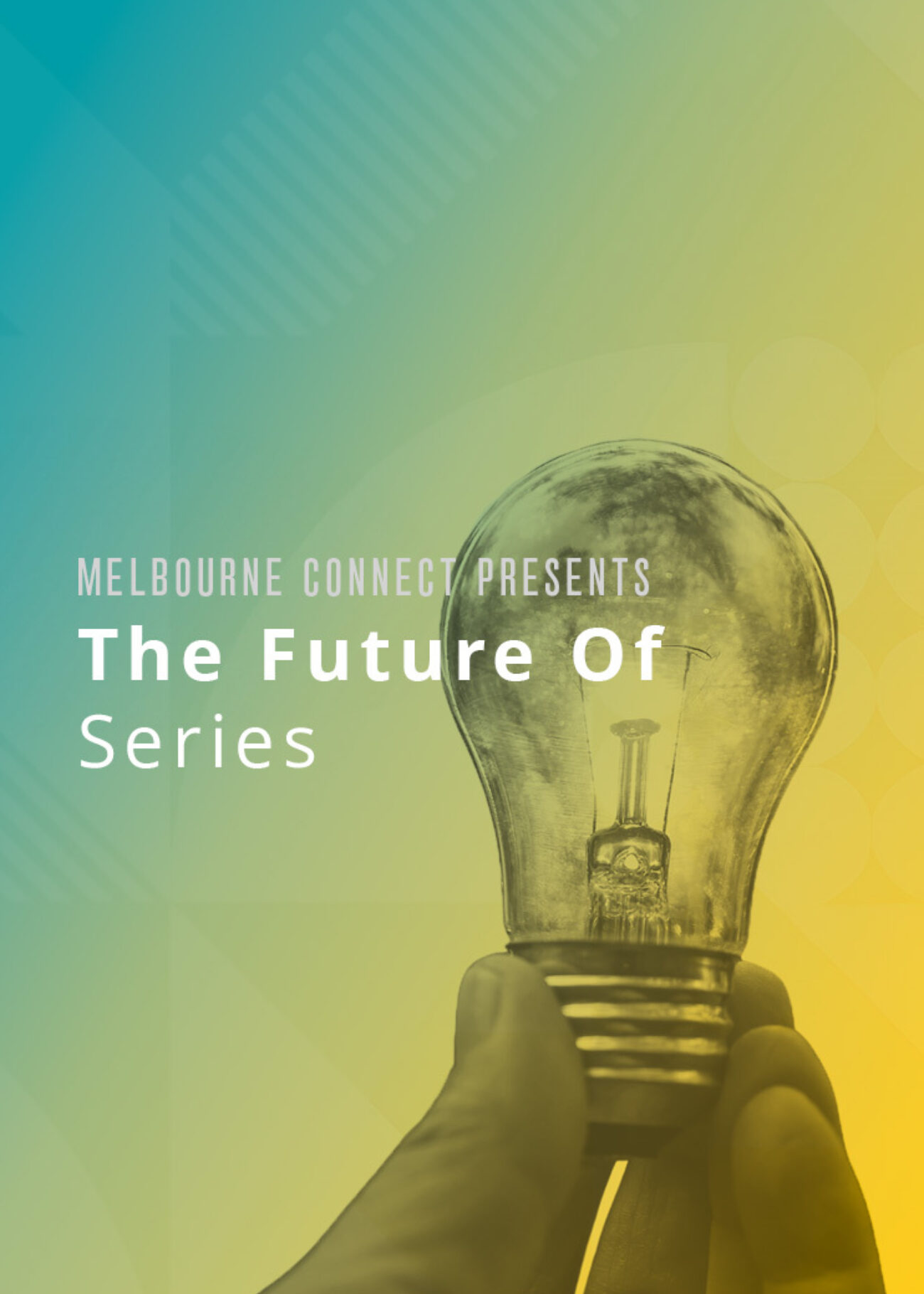


Melbourne Connect's events program offers innovation and inspiration across a range of topics and industries. From academic lectures and debates to graduate exhibitions, innovation festivals that engage the whole city, and cocktail networking events with our entrepreneurial community. Many of our events are open to the public and free to attend, so we look forward to welcoming you to one of our upcoming events.
Melbourne Connect’s The Future of series is a dynamic platform connecting industry leaders, researchers, and government bodies to explore the future of how society will work, live, and play. Through thought-provoking discussions, cutting-edge research presentations, and collaborative exchanges, each research showcase highlights the latest innovations shaping our world.
Covering critical topics such as emerging technologies, sustainability, digital transformation, and social impact, the series bridges academia and industry to drive progress across multiple sectors. Participants gain access to groundbreaking research, real-world applications, and strategic insights that address contemporary challenges and opportunities.
With an interdisciplinary approach, The Future of series provides a comprehensive exploration of pressing global issues, from the evolution of smart cities, AI-driven industries to advancements in healthcare and education. Experts share knowledge, policymakers provide perspectives, and innovators present solutions poised to reshape society.
By fostering dialogue and collaboration, this series serves as a catalyst for innovation, knowledge-sharing, and impactful partnerships. Whether you're a researcher, entrepreneur, or policy leader, The Future of series offers a unique opportunity to engage with forward-thinking ideas and help shape what’s next.
